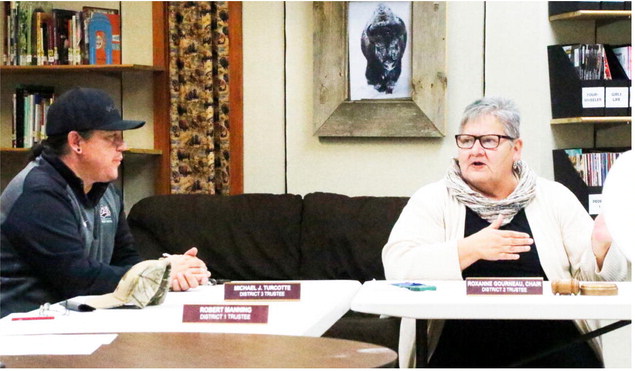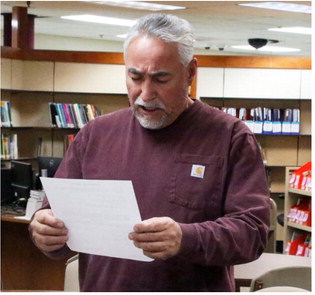Recreational Marijuana Measure Heads To Ballot In North Dakota
North Dakota voters will decide the fate of recreational marijuana for the third time since 2018 after the Secretary of State’s Office approved the measure for the November ballot. The office announced Monday, Aug. 26, it has verified nearly 19,000 of the more than 22,000 signatures submitted to the office. A total of 15,582 signatures were needed to qualify for the ballot.
“It’s just an exciting day for North Dakota … economically, from a law enforcement perspective and a judicial perspective,” said Steve Bakken, chairman of the measure’s sponsoring committee.
Of the more than 3,000 signatures rejected by the office, more than 1,300 were rejected for inadequate signatures; more than 900 had an address omission; about 120 contained no date; and about 100 contained an out-of-state address.
“A big part of this is the educational piece,” Bakken said. “Getting the public, and elected officials and everyone educated on the real measure and what the real ramifications are, that’s where the lift starts.”
Bakken said this recreational marijuana measure is more conservative than in years past and encouraged voters to read the text.
“It fits into the fabric of North Dakota, and it’s not coming from out of state, it’s not going to be the wild, wild west,” he said. “The plants you can grow, it’s conservative. You can’t fill your backyard up with plants.”
He added he believes possession limits will let law enforcement know who is growing for personal consumption and who may be trying to skirt the law into illegal marijuana dealing.
If passed by voters, North Dakotans 21 and older would be allowed to possess up to 1 ounce of cannabis flower, up to 4 grams of THC concentrate, up to 1,500 milligrams of various cannabis products and up to 300 milligrams of THC edible products, according to the ballot measure.
The North Dakota Sheriffs and Deputies Association and the Chiefs of Police Association of North Dakota have opposed legalizing recreational marijuana in the past. The groups have yet to take a position on this measure. Some, including Burleigh County Sheriff Kelly Leben, have expressed opposition.
“Legalized marijuana increases crime, increases DUIs and increases illegal drug trafficking of harder drugs,” Leben said.
Adults also would be able to grow up to three marijuana plants in a private residence, or on private property, generally not accessible to the public, with the blessing of the property owner.
The initiative prohibits cannabis use in all public places, indoor and outdoors. It also prohibits cannabis use while driving and while using public transit.
The measure provides rights to people who may have faced punishment for cannabis use in the past in certain situations while protecting employers who may continue to enforce zero-tolerance policies at their businesses.
“This does not constrain the constrained workforce any further that we have in North Dakota,” Bakken said. “That’s kind of a misconception and that’s what we need to work on. That’s the educational piece … this isn’t ‘Reefer Madness’ from the 1960s.”
Pat Finken, chair of the Brighter Future Alliance, said the organization opposed both previous ballot initiated attempts for recreational marijuana in North Dakota.
“The people of North Dakota soundly rejected the idea of recreational marijuana in 2018 and 2022, but here they are again,” Finken said in a Brighter Future Alliance news release.
Dr. Joan Connell, a Bismarck- based pediatrician, also opposed the measure in a statement released by the Brighter Future Alliance, citing research about chronic marijuana use.
“I am not in favor of legalizing yet another substance that sabotages the brain’s normal development,” Connell said. “I am disappointed that some people would prioritize business and profits over what is best for North Dakotans.”
The Ballot Language
The recreational marijuana ballot initiative will be Measure 5 on the general election ballot. The statutory title will be: The initiated measure would create a new chapter of the North Dakota Century Code. It would allow for the production, processing, and sale of cannabis and the possession and use of various forms of cannabis by individuals who are 21 years of age and older; direct a state entity to regulate and register adult use cannabis production businesses, dispensaries, and their agents; provide protections for individuals who are 21 years of age or older who use cannabis; provide penalties for violations of the chapter; preserve certain employer rights regarding use of cannabis products by employees; supersede local ordinances that otherwise would prohibit the purchase, sale, use, delivery, or growing of cannabis by or to individuals 21 years of age or older; and provide that fees must be appropriated for administration of this chapter.
(This story was originally published by the North Dakota Monitor which is part of States Newsroom, a nonprofit news network, including the Daily Montanan, supported by grants and a coalition of donors as a 501c(3) public charity.)
AM

